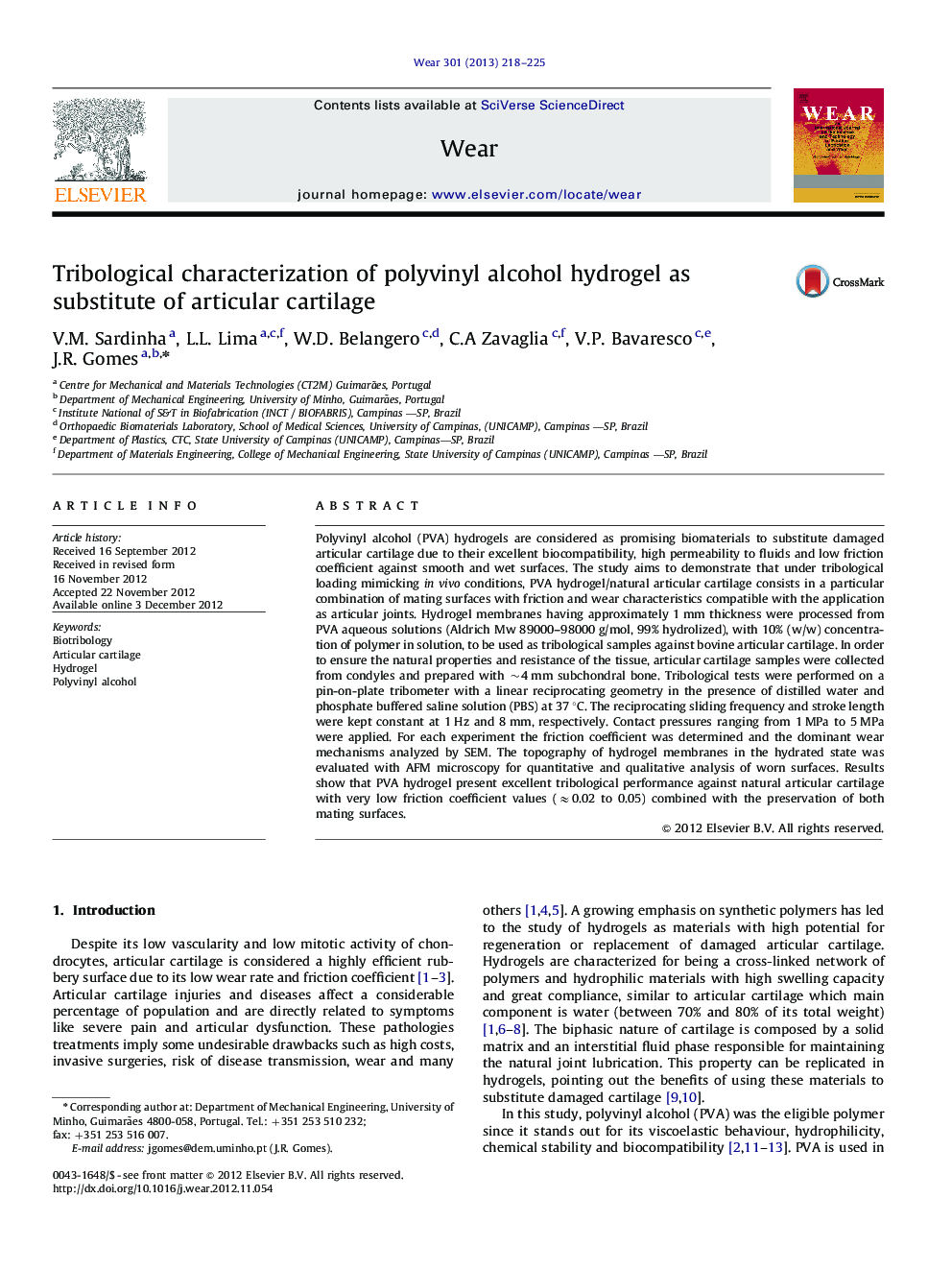| Article ID | Journal | Published Year | Pages | File Type |
|---|---|---|---|---|
| 617525 | Wear | 2013 | 8 Pages |
Polyvinyl alcohol (PVA) hydrogels are considered as promising biomaterials to substitute damaged articular cartilage due to their excellent biocompatibility, high permeability to fluids and low friction coefficient against smooth and wet surfaces. The study aims to demonstrate that under tribological loading mimicking in vivo conditions, PVA hydrogel/natural articular cartilage consists in a particular combination of mating surfaces with friction and wear characteristics compatible with the application as articular joints. Hydrogel membranes having approximately 1 mm thickness were processed from PVA aqueous solutions (Aldrich Mw 89000–98000 g/mol, 99% hydrolized), with 10% (w/w) concentration of polymer in solution, to be used as tribological samples against bovine articular cartilage. In order to ensure the natural properties and resistance of the tissue, articular cartilage samples were collected from condyles and prepared with ∼4 mm subchondral bone. Tribological tests were performed on a pin-on-plate tribometer with a linear reciprocating geometry in the presence of distilled water and phosphate buffered saline solution (PBS) at 37 °C. The reciprocating sliding frequency and stroke length were kept constant at 1 Hz and 8 mm, respectively. Contact pressures ranging from 1 MPa to 5 MPa were applied. For each experiment the friction coefficient was determined and the dominant wear mechanisms analyzed by SEM. The topography of hydrogel membranes in the hydrated state was evaluated with AFM microscopy for quantitative and qualitative analysis of worn surfaces. Results show that PVA hydrogel present excellent tribological performance against natural articular cartilage with very low friction coefficient values (≈0.02 to 0.05) combined with the preservation of both mating surfaces.
